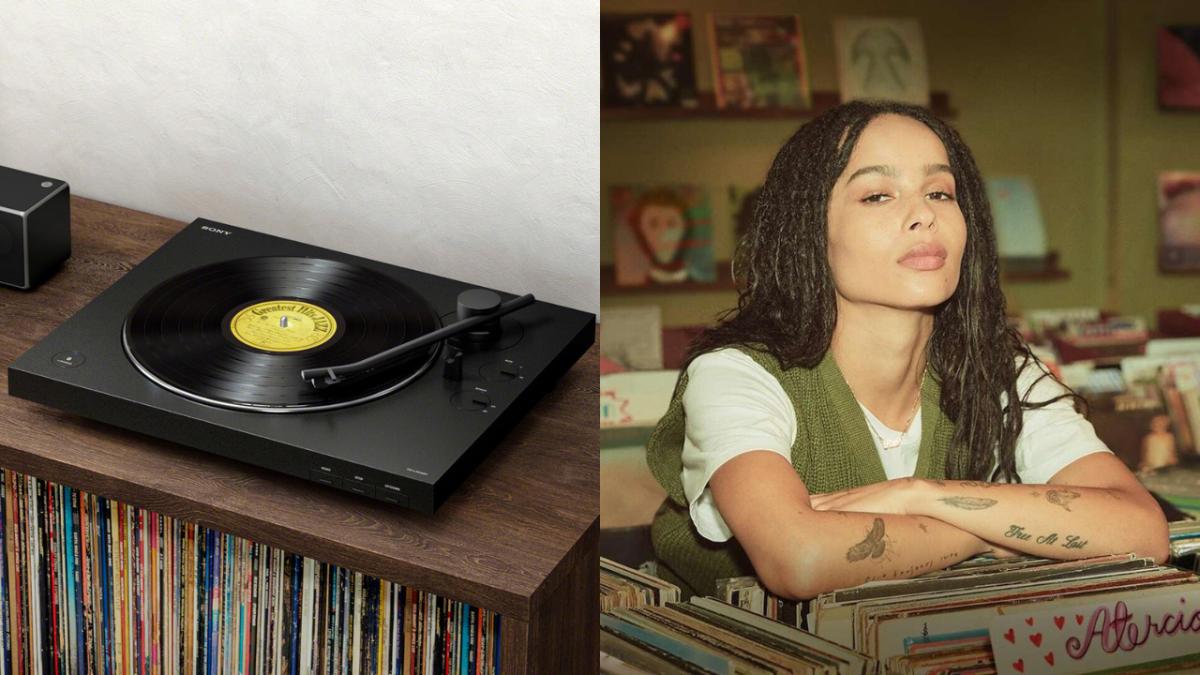
Is it good that we have almost every song ever made at our fingertips 24/7? Sure, I love being able to wake up at 3am and listen to Collision Course by Linkin Park and Jay-Z. That’s just good living, right there. But vinyl records just hit differently, y’know?
And I’m not talking about that whole cliche of “the warmth of vinyl, man”, but rather the act of having to experience an album in full. No skipping, no shuffling – you put the record on and listen to it until it ends. You get to experience the breadth of the record, instead of a bunch of songs in isolation.
If you’ve decided that 2024 is the year that you finally commit to the vinyl life, or you’ve randomly collected a bunch of albums but with no record player to play them on (did you impulse preorder a copy of Taylor Swift‘s The Tortured Poets Department?) – here’s everything you need to know. From buying your first turntable to the extra bits you’ll need and how to keep your records in good condition.
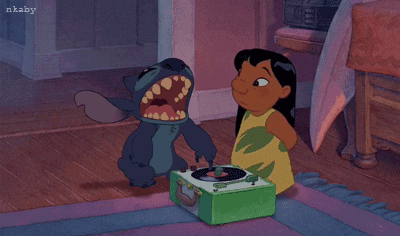
Table of contents
It’ll cost ya
Let’s get this out of the way – record collecting is not a cheap hobby. For a good entry-level record player, be prepared to spend around $300 to $400, at least. And that’s not counting records. As they say, you get into vinyl for the expense and inconvenience.
You know that old saying about how you get what you paid for? That’s particularly true when it comes to record players. If you want a record player with good audio quality that won’t fuck up your records, you’re going to need to spend a few hundred dollars to get there.
I wouldn’t recommend buying a record player for less than $200 unless it was massively discounted. The closer you get to the $100 mark, the worse the sound quality usually gets (I would avoid anything under $100). I’d also avoid those all-in-one suitcase record players – they can do everything just okay instead of doing a few things very well.
The upside of buying a quality record player is that, if you treat it right and keep it maintained, you’ll have it for years.
I’d also argue that the price tag on an album makes you appreciate it more. Unless you’re Jeff Bezos rich, you aren’t going to be dropping hundreds of dollars on records every week. Your record collection is as big (or small) as your budget will allow, so you’ll listen to what you’ve got more because a) that’s all you’ve got and b) you want to get your money’s worth.

Things to know before buying a record player
Before we get to our record player recommendations, here are a few terms that you’ll encounter when shopping around.
- Automatic: These turntables will automatically raise and lower the tonearm when the record starts and finishes. Worth it if you don’t trust the steadiness of your hand
- Semi-automatic: You’ll need to manually place the needle down to start the record, but the turntable will automatically lift it once the album is over
- Manual: You’ll need to place the needle down to start the record and lift it once it ends. As a word of advice, never drop the needle. Always lower it gently and slowly
- Direct drive: These record players use a motor that connects directly to the platter (aka the plate you place your record onto)
- Belt drive: These use a motor that connects to the platter via a belt. These turntables are usually cheaper than direct-driven ones
- Built-in pre-amp: This just means the turntable has a pre-amp built-in, so you can plug it directly into a speaker. If you prefer to buy a vintage record player rather than a modern one, there’s a good chance it doesn’t come with a pre-amp, so you’ll need to buy one of those too
- Tonearm: This is what your needle (aka cartridge) is connected to. When you get your record player, you’ll most likely need to balance out the tonearm’s anti-skating weight, so it sits neutrally and isn’t pulling in any direction
Where you place your record player is also important. You’ll want to keep it on a sturdy surface to reduce vibrations affecting how the needle moves. If you can, don’t put the speakers on the same surface as the record player, so you can avoid vibrations created by whatever you’re playing (especially bass-heavy tracks).
The best record players for beginners
Sony PS-LX310BT Bluetooth Turntable
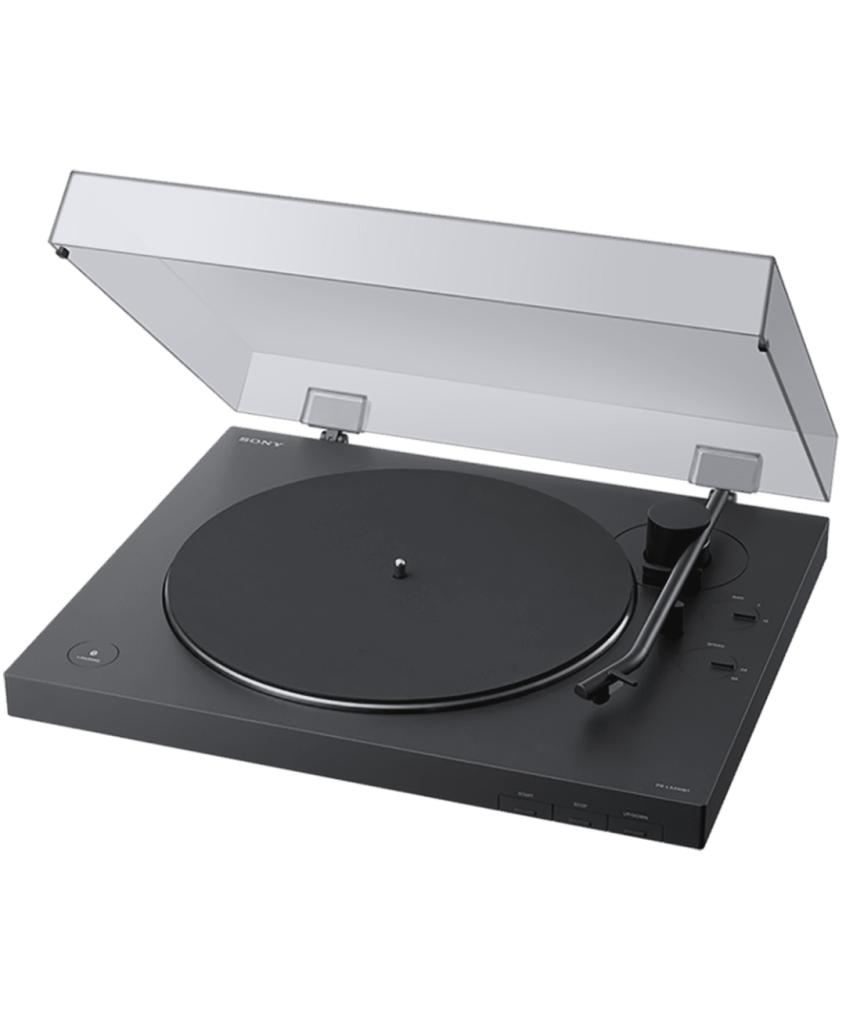
Sony has a pretty solid track record when it comes to home audio, and its record players are no different.
Under its slick, minimalist design, the PS-LX310 is belt-driven with a built-in pre-amp and Bluetooth connectivity.
This is a fully automatic turntable, so all you need to do is plop down your record, hit play and let the PS-LX310 do its thing.
Audio Technica AT-LP60XBT Bluetooth Turntable
Audio Technica is a pretty well-regarded name when it comes to record players. As an entry-level option, you could do a lot worse.
The AT-LP60XBT is a solid automatic, belt-driven record player. It comes with a pre-amp built-in and Bluetooth support, so you can sync it with a portable speaker or your headphones.
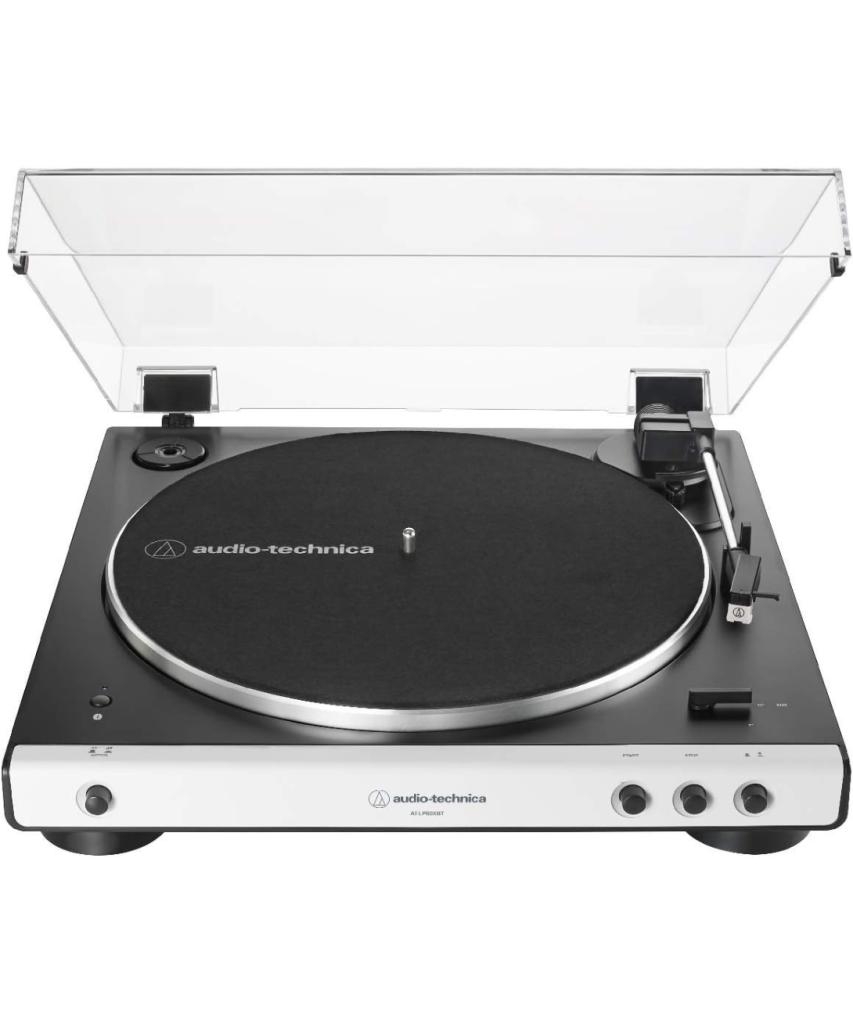
Crosley C62 Shelf System Turntable
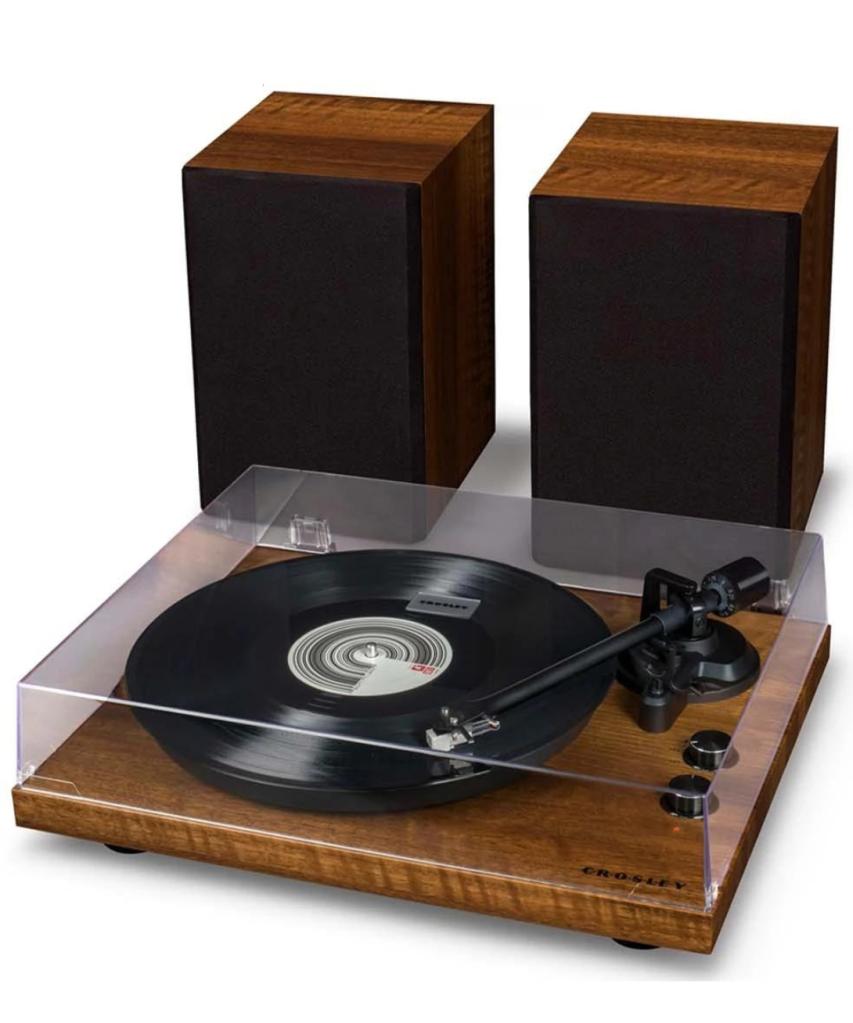
The Crosley C62 is a decent all-in-one package. Not only do you get a turntable, but it also includes two speakers. It has a built-in pre-amp, so you can connect directly to them.
However, while it does support Bluetooth, it can only receive not transmit. That means you won’t be able to connect the C62 to external speakers via Bluetooth.
Audio Technica Sound Burger
If you’re pressed for space, then I recommend the Sound Burger. You get the best of Audio Technica’s tech, combined with a Bluetooth turntable that you can stick under your coffee table when it isn’t in use.
Plus, it just looks cool.
The big catch here is that it’s manual, so you’ll need a steady hand to put the needle down. The lack of a platter means it’ll need to be on a steady surface for vibrations.
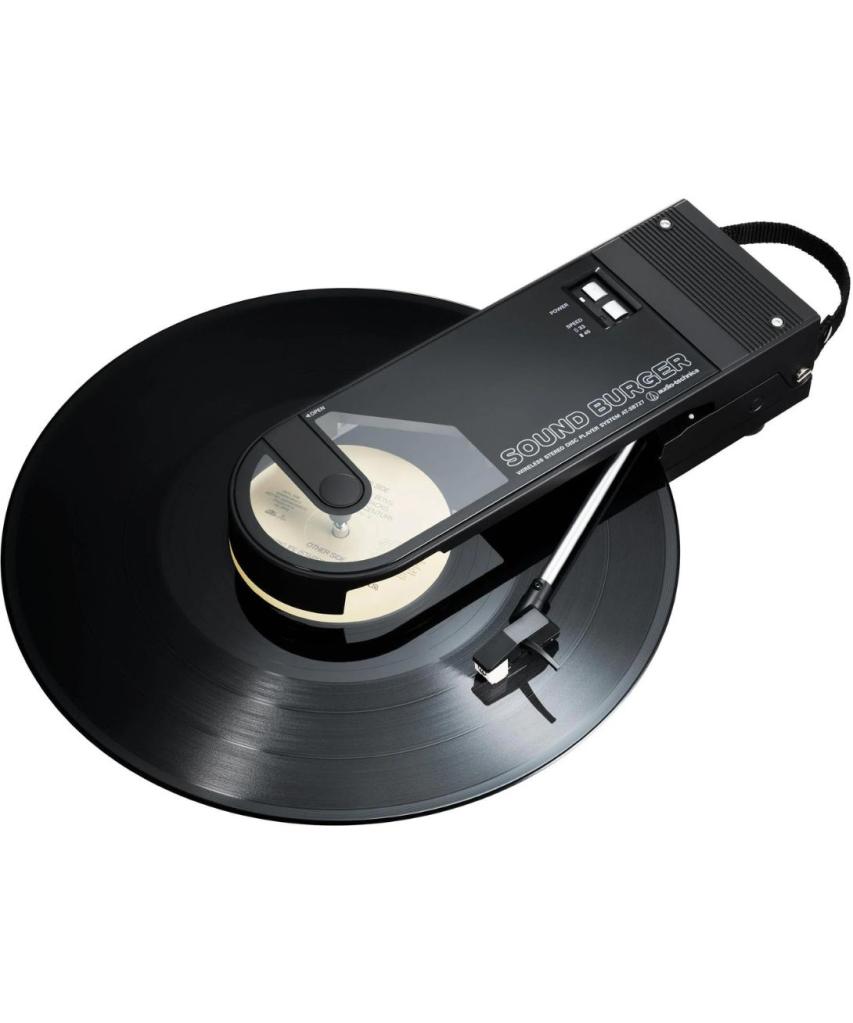
Crosley Voyager Portable Bluetooth Turntable
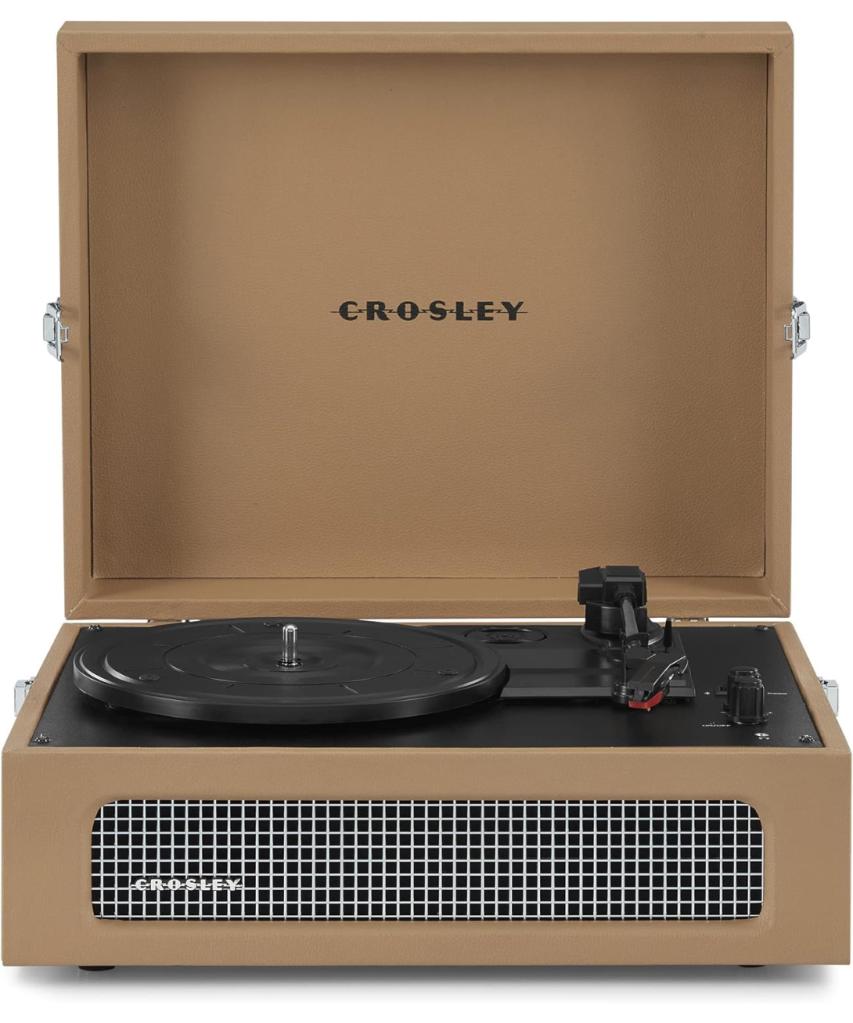
I know I made a big deal over not buying a turntable under $200, but I also get that not everyone can drop a few hundred dollars on a record player.
The Voyager is a budget option through and through. It’s compact and portable with Bluetooth support, and it’ll play your albums with no problem (although your mileage may vary with the audio quality).
Do yourself a favour and use external speakers instead of the built-in ones.
Sort out your storage
While knicking a few milk crates from your local primary school is the cheapest option you’ve got (it’s fine, we’ve all done it), those crates aren’t wide enough to properly hold more than a few records. The tightness of that fit can apply unnecessary pressure that’ll warp your records.
Stores your records upright, not laid down flat as the weight will warp your albums. While the album on the top of your pile will be fine, the same can’t be said for the ones at the bottom.
Either buy yourself a record crate or a storage stand if you’ve only got a small collection or use a shelf that’s deep enough to hold a record without it hanging over. Those square Ikea shelves that seemingly everyone owns have become the easy go-to record shelf for a reason.
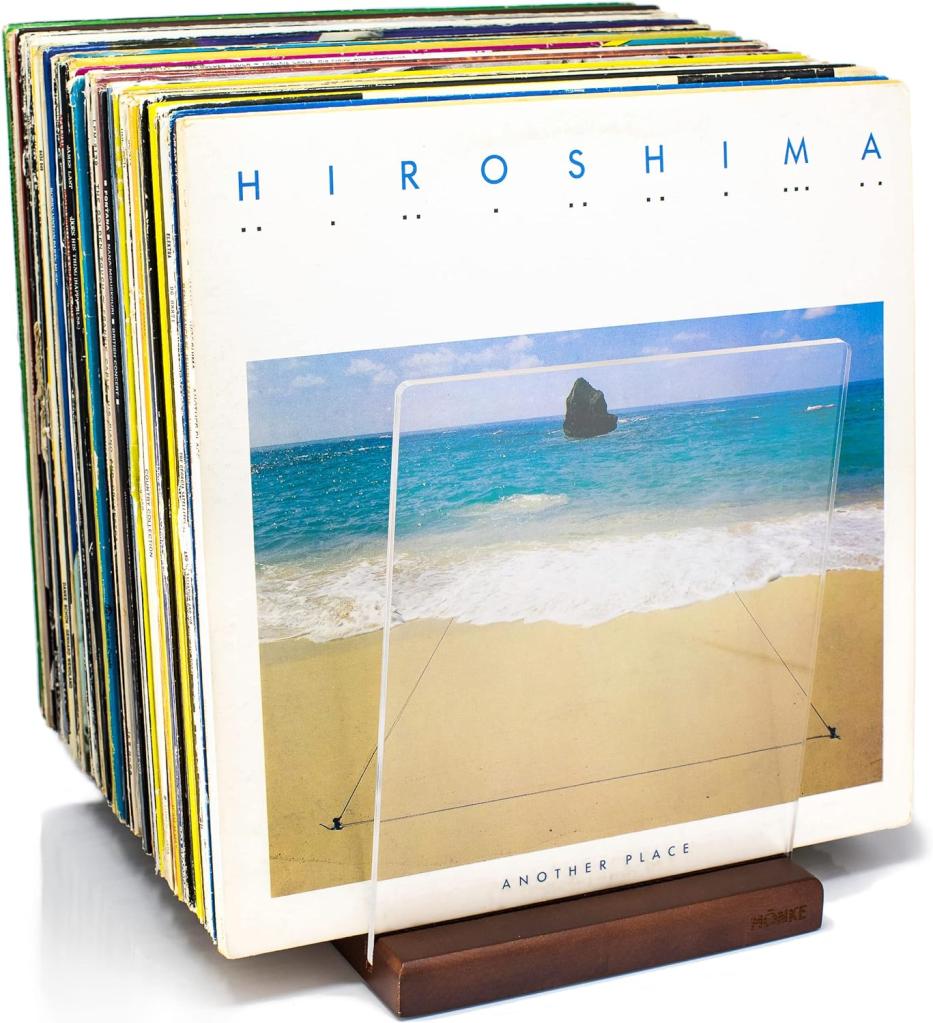
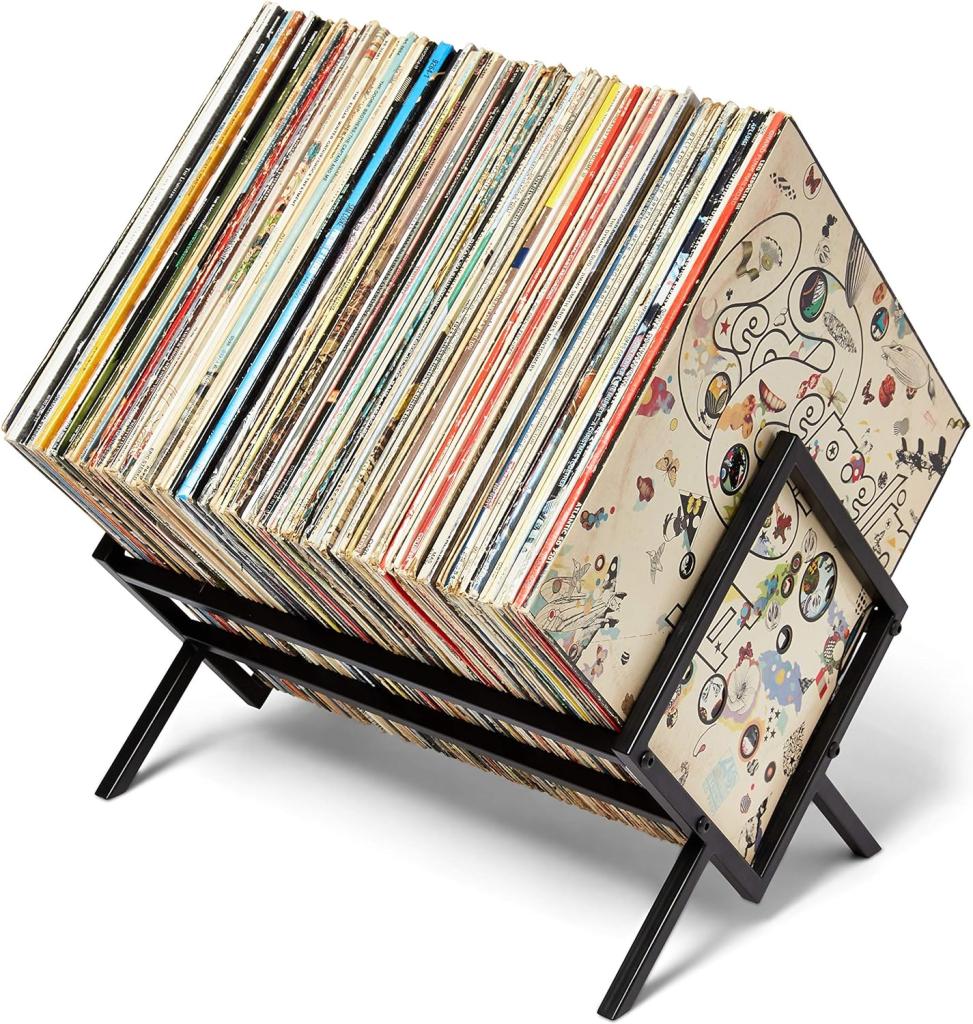
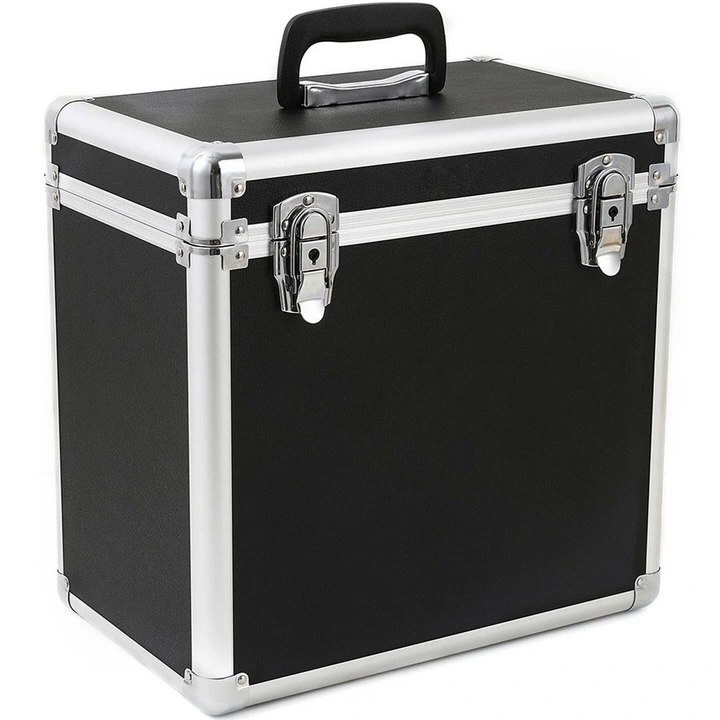
Get a cleaning kit, ya grub
Here’s the thing, your records will get dusty over time and they’ll need to be cleaned. You can’t have gunk building up in the record’s grooves and potentially damaging your needle. It’s one of those things you can’t avoid, but it’s easy to take care of if you’re diligent.
At the very least, you should buy a brush kit – one that can be used to clean both your records and your player’s stylus. After you finish listening to a record, take the needle off and then gently hold the brush to the vinyl while it’s still running. Grabbing a turntable with a protective dust cover is also handy.
If you’ve got a particularly grubby record, whether it’s a secondhand find or you’ve left something out for a solid month, get a cleaning kit that includes some record cleaning fluid.
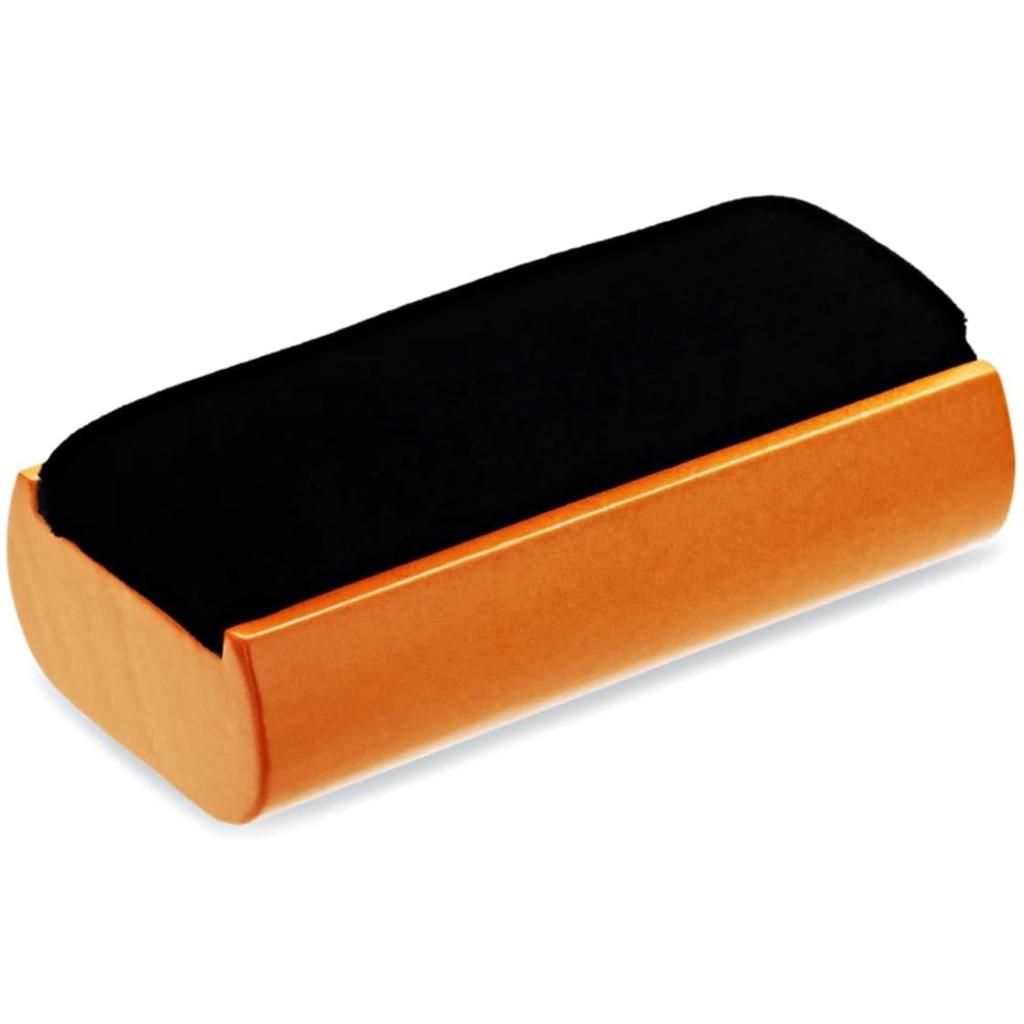
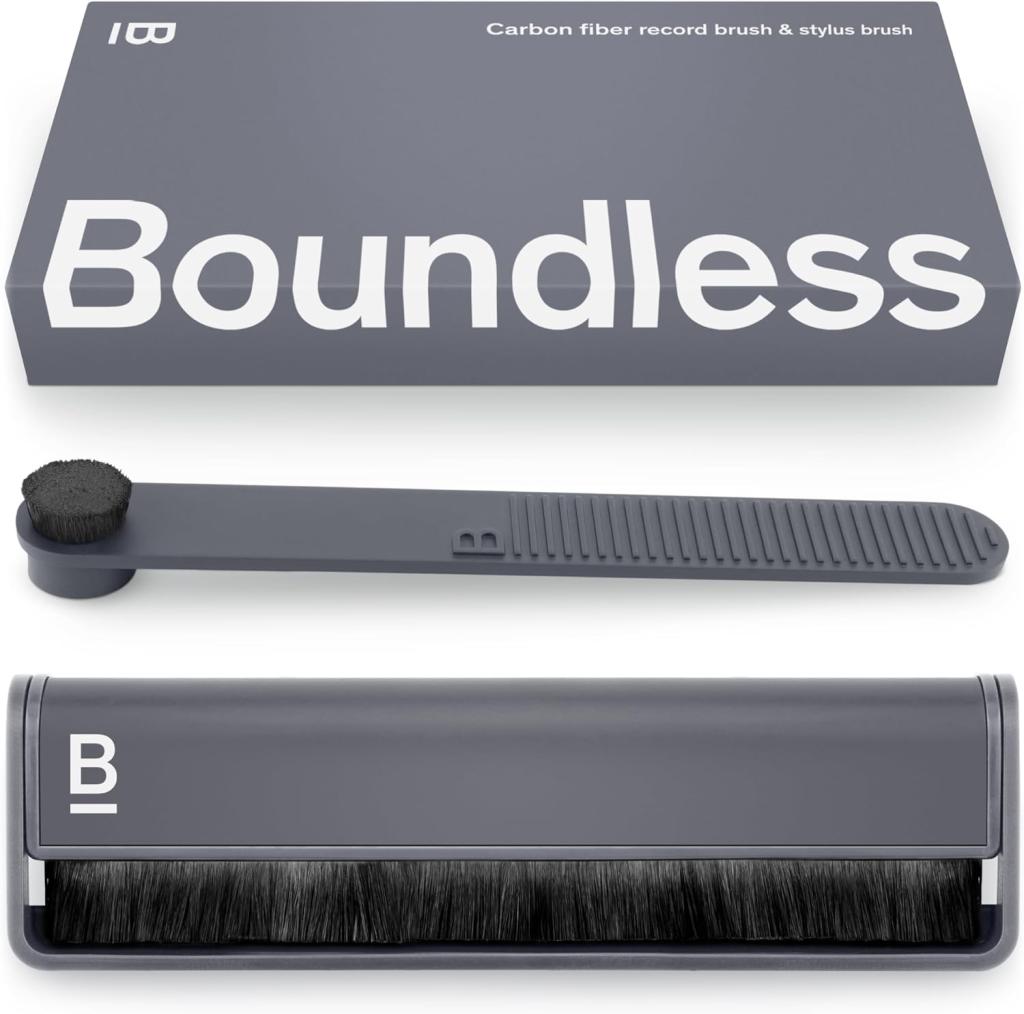
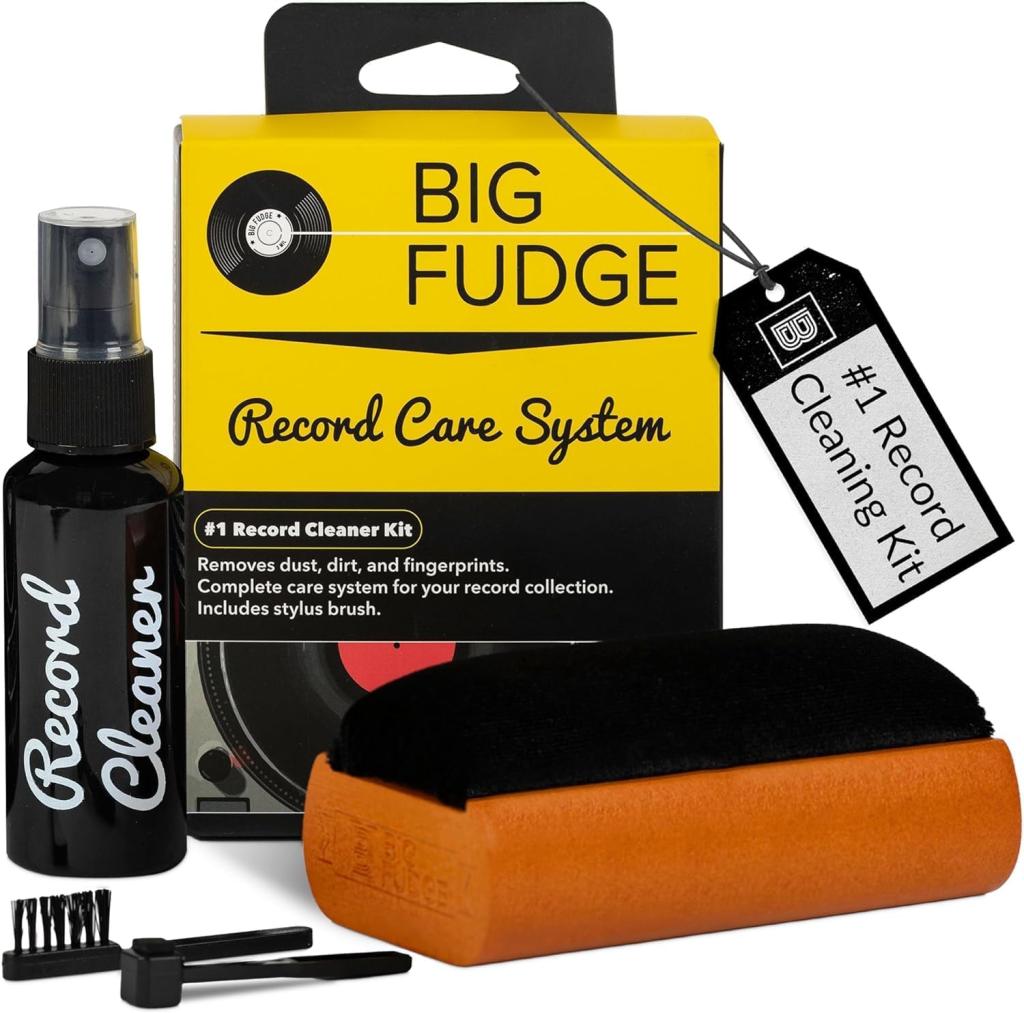
While you can clean your grubby records with a bit of dish soap and water, I wouldn’t recommend it. You can’t use tap water because you don’t want to transfer any minerals onto the record. It needs to be distilled water.
While dish soap can work, you need to be precise with how much you use. Too much, and you’ll leave residue on your records that’ll affect the playback quality and wear on your needle. Save yourself the trouble and buy a proper record cleaning kit. Better safe than sorry.
Any other essentials?
You’ll also want to nab yourself a mat. These will help to reduce static and stop your vinyl from moving around when on the platter.
A bag of record sleeves will go a long way as well. Again, it’ll help reduce any dust getting on your records and damaging them.
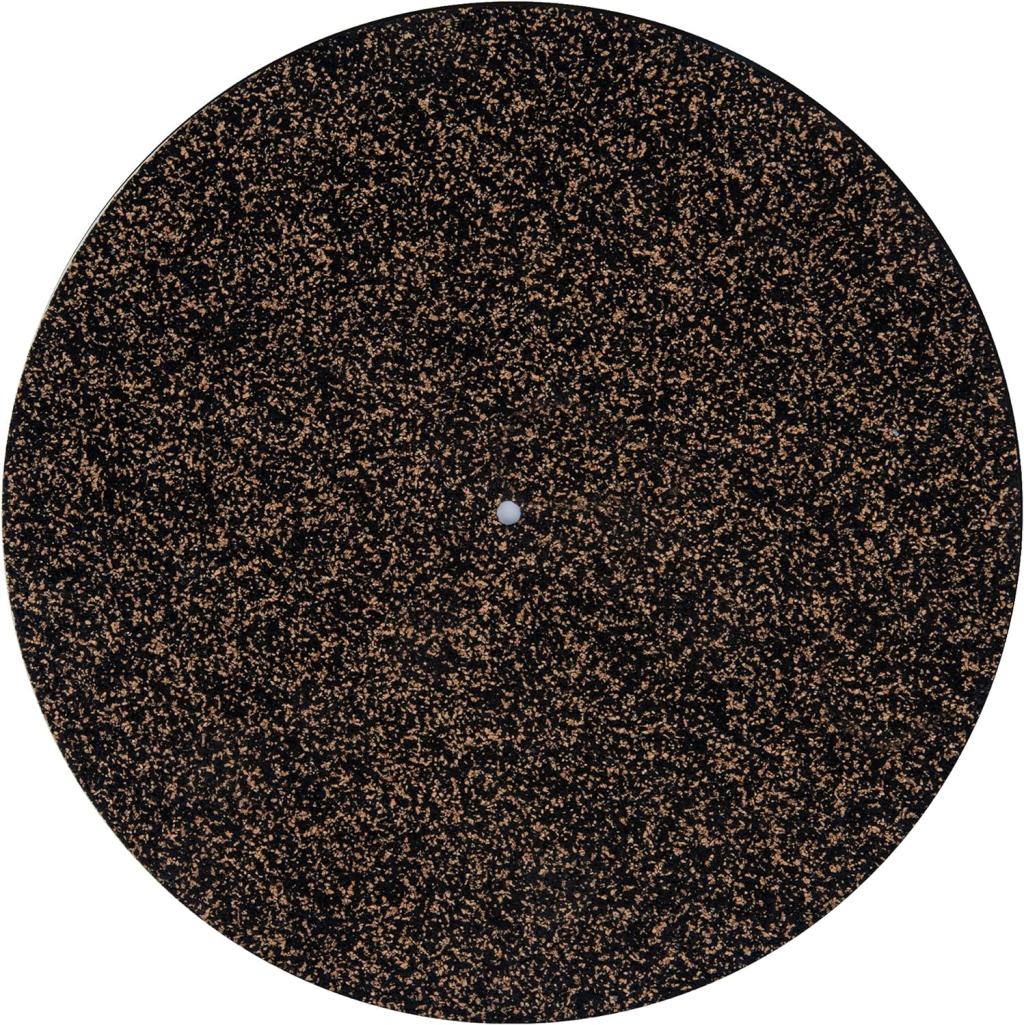
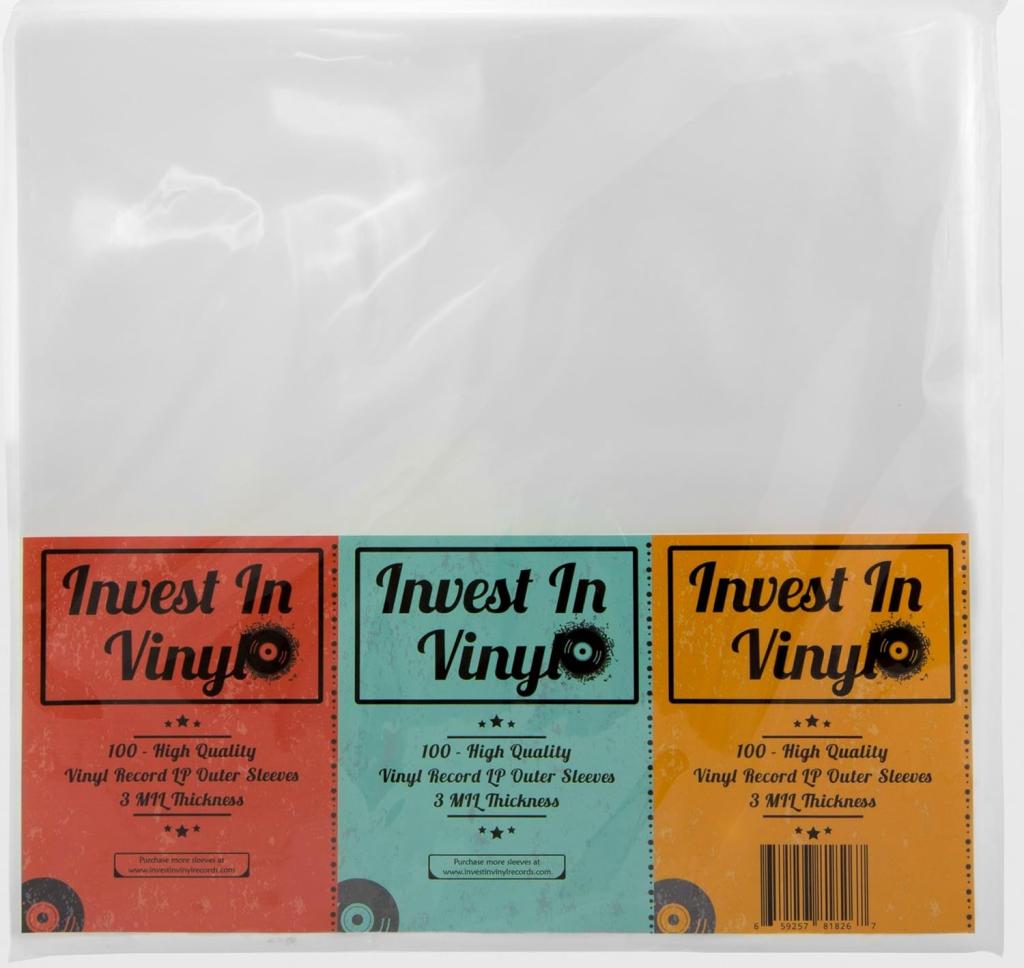
How to handle vinyl aka don’t touch the grooves, man
Please.
Please.
Please do not hold your records in a way where your fingers are touching the grooves. If you hold on too tight, you can warp those grooves, which will damage them. On top of that, you can also transfer whatever you’ve been touching into those grooves, which can get caught up on the needle.
You should only ever touch the edges of your records. It’ll help prolong the life of your record so you’ll still be playing the same copy of Folklore decades later, while also making sure your turntable stays in good knick too.
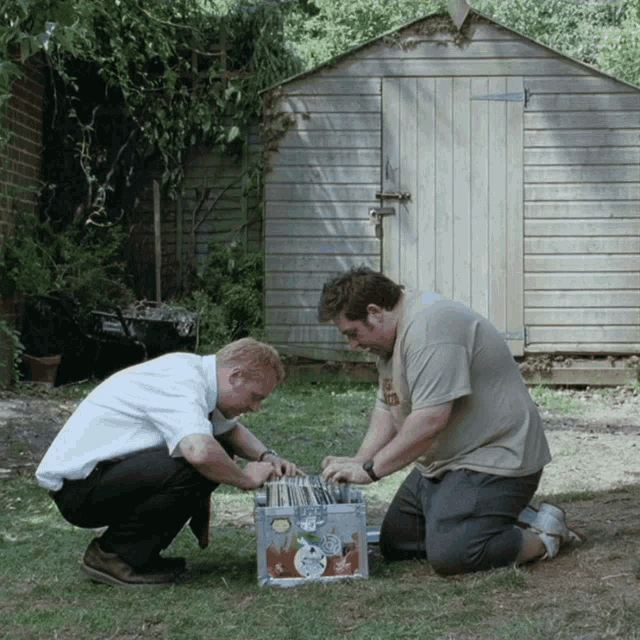
Where can you buy vinyl?
JB Hi-Fi stocks a pretty steady stream of vinyl. Their catalogue mostly leans towards the more popular cuts, but if you want a copy of Ziggy Stardust or Nevermind, the chances of finding one at your local store are pretty good.
Amazon Australia is a good option for local stuff, and you can occasionally import records from overseas at fairly decent prices!
If you are going to start collecting vinyl, go find your local record shop. There’s a good chance they have a hook-up for imports that a retailer like JB Hi-Fi doesn’t have access to. Not to mention the potential gems that could have if they deal in secondhand vinyl.
Record fairs are also a great place to pick up stuff that might not make it to your local stores. You might even meet someone who’ll become Your Guy aka the dealer who’ll help you track down those harder-to-find records that you’ve been trying to find. Every vinyl collector needs A Guy.
If you do buy any secondhand vinyl from Vinnies or Salvos, give them a quick check to make sure there aren’t any visible warps or scratches. You’ll most likely need to give them a bit of a clean when you get home, but, hey, if you can score a copy of Nevermind for $2, that’s worth the elbow grease.
Image: Sony/Hulu